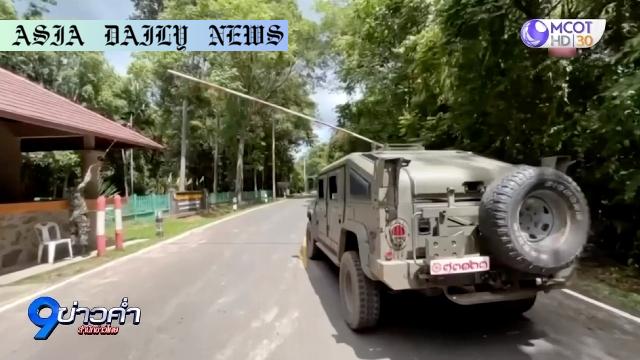Border Clash: Thailand urges direct dialogue with Cambodia after last week’s military skirmish, rejecting ICJ’s jurisdiction.
Thailand urges direct dialogue with Cambodia after a deadly border clash.
Cambodia plans to involve the International Court of Justice despite resistance from Thailand.
Both nations vow peaceful negotiations but seek to preserve territorial sovereignty.
Existing diplomatic relations remain intact despite recurring territorial disputes.

Introduction: Escalation of Border Tensions
In a recent development highlighting simmering tensions between neighboring countries Thailand and Cambodia, a military clash erupted along their contested border region on May 28, 2023. The skirmish claimed the life of a Cambodian soldier and reignited long-standing territorial disputes that, despite closer diplomatic ties in recent years, refuse to remain dormant. Both nations have since reiterated their commitment to peaceful resolutions, although differing strategies have created added complexities.
The Push for Direct Dialogue
Following the clash, the Thai government has called upon Cambodia to prioritize direct dialogue to address the issue. Thailand rejects the jurisdiction of the International Court of Justice (ICJ), arguing that bilateral mechanisms already exist to manage such disputes. The country released an official statement emphasizing its preference for negotiations that bypass international legal intervention, a position that underscores its cautious approach toward any external arbitration.
Cambodia’s Resolve for ICJ Intervention
Meanwhile, Cambodia’s stance has diverged significantly. The government in Phnom Penh has announced its intention to escalate the matter to the ICJ, citing limitations in the existing frameworks for conflict resolution. Cambodia views this approach as a way to gain an impartial judgment on the territorial issue, reflecting its stronger reliance on international institutions for resolving such disputes. This tactic, however, has faced strong opposition from Thailand, complicating diplomatic efforts.
Protecting Sovereignty: A Shared Goal
Despite their differences, both Thailand and Cambodia share a common goal – the protection of their respective sovereignties. Both sides have made commitments to avoid jeopardizing this objective while working toward a peaceful solution. While this mutual commitment to sovereignty offers some hope for durable peace, territorial disputes remain a sensitive and emotionally charged issue for both governments.
Historical Context and Current Relevance
The border tension between Thailand and Cambodia is rooted in colonial-era territorial demarcations, particularly around the Preah Vihear Temple area. These disputes have occasionally flared into violence, harming diplomatic relations in the past. However, in recent years, the two nations have initiated efforts to strengthen bilateral ties, focusing on economic integration and regional cooperation. The current situation poses a real challenge to those efforts, testing the depth of their commitment to peaceful diplomacy.
Conclusion: Navigating the Path to Peace
The latest skirmish highlights the fragile nature of relations between Thailand and Cambodia, where historical grievances and national pride intersect. While the call for direct dialogue aligns with diplomatic norms, Cambodia’s insistence on ICJ involvement reflects its reservations about bilateral mechanisms. For sustainable peace, both countries must prioritize transparent and sincere discussions, leveraging their shared history and common aspirations to rise above the divisive issues threatening to derail their progress.



Commentary
Reflecting on the Border Clash
The recent clash along the Thai-Cambodian border is a stark reminder of how unresolved historical issues can resurface and destabilize otherwise improving relationships between nations. For those familiar with international relations, this incident serves as a challenge to the principle of peaceful conflict resolution. Both governments must remember that their actions today set the tone for future diplomatic interactions, especially as mutual neighbors sharing not just borders but deep cultural connections.
The Complexity of Sovereignty and Dialogue
Sovereignty is a sensitive and non-negotiable issue for most nations, and in the case of Thailand and Cambodia, it is no different. Thailand’s rejection of ICJ jurisdiction reflects its firm belief in preserving autonomy over such decisions, while Cambodia’s willingness to involve the ICJ reveals a contrasting reliance on international legitimacy. These approaches showcase not only political differences but also diverging philosophies on conflict resolution.
Looking Ahead: Advancing Peace Efforts
Both Thailand and Cambodia have much to gain from a peaceful resolution. Regional stability is essential for fostering economic development and security. It is crucial for the international community to encourage dialogue, offering platforms where both parties feel heard and respected. At a time when so much is at stake, from diplomatic credibility to cross-border economic opportunities, the path forward must be defined by pragmatism, mutual respect, and a sincere commitment to peace.